“I eat a healthy diet”. What does that mean? It’s very subjective and heavily influenced by our upbringing, the media, our friends and specialists like doctors and nutritionists.
For some, eating healthy might mean avoiding fast food like McDonald’s. For others it might mean following a plant based regime. And for others still it might mean avoiding all processed foods. But none of these principles takes into account the real top 3 reasons why your healthy diet is actually not working for you!
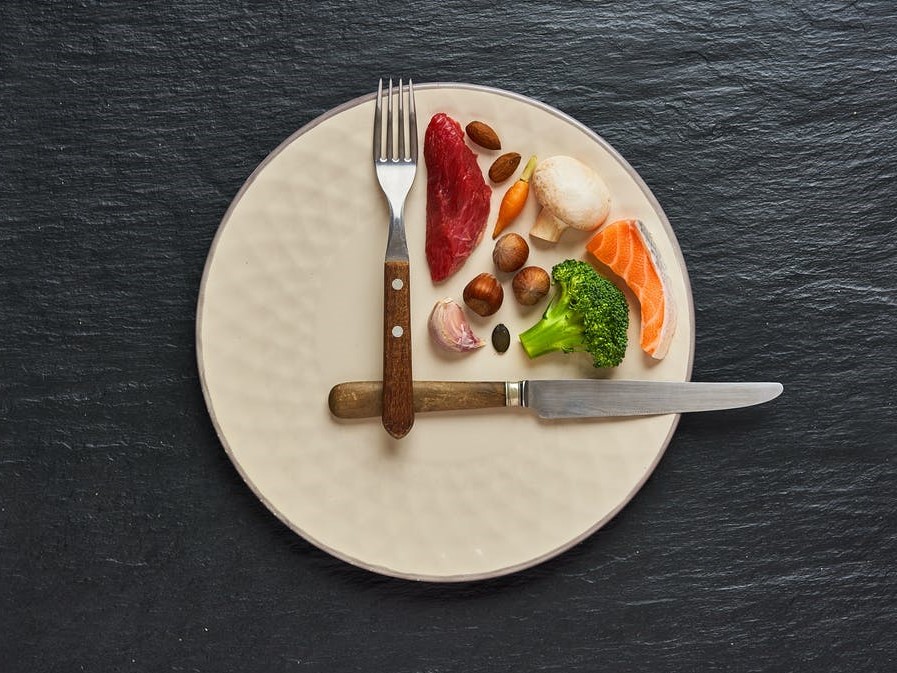
#1 Undereating
Irrespective of how healthy the food is on your plate, undereating, is one of the most common things we see in our practice. Those of us in our 40s and 50s, and probably most people either side of those ages, have been brainwashed for decades by the media and the commercial fitness industry that the best way to lose weight is to “Eat less, move more”. It’s garbage advice because it either doesn’t work or is too difficult to follow. If it were good advice the developed world wouldn’t be the sickest and fattest it’s ever been!
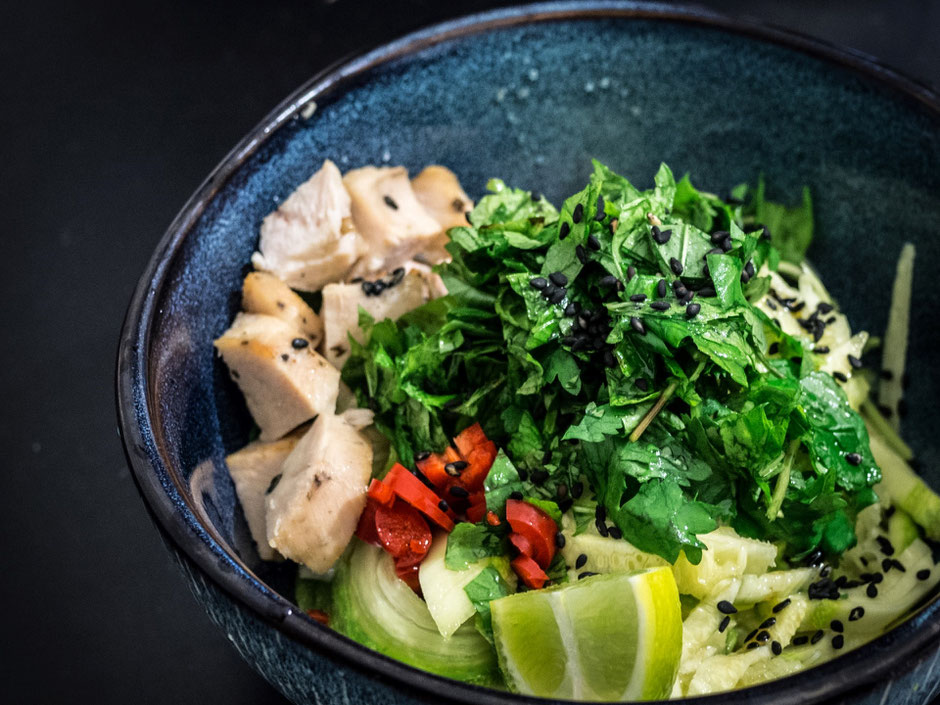
Sure, eating less may work for a couple of months, and you may lose some weight, but it’s not sustainable. And if you do chronically undereat for more than a few months then this is what happens:
Step 1: Your metabolism slows down to conserve energy to match your lowered energy intake.
Step 2: Your survival genes will kick in putting you into “fat storage mode”.
Step 3: The weight loss plateaus.
Step 4: You’ll start feeling increasingly sleepy and low on energy throughout the day. Your body thinks it’s in famine state, it doesn’t want you jumping around!
Step 5: Naturally, you’ll not feel like hitting the gym or exercising.
Step 6: Despite undereating you will start putting the weight on because your body is doing everything it can to make you fat and conserve energy.
Step 7: And of course, we’re not just talking about weight, but undereating is guaranteed to make sure you’re deficient in essential minerals and nutrients and the health complications will start piling up.
As health practitioners we know that if anyone has any issues with being overweight and/or is fatigued then food quantity is the first thing we need to look at. We explored this topic more deeply here, Why you are always tired and fatigued.
So how much should you be eating?
Well let’s look at a typical healthy diet. Maybe it looks something like this:
- porridge oats, blueberries and a cup of tea or coffee for breakfast
- a large Asian chicken salad with and dressing for lunch
- a handful of almonds in the afternoon for a snack
- chicken rice with bok choi for dinner
- mixed fruit for dessert
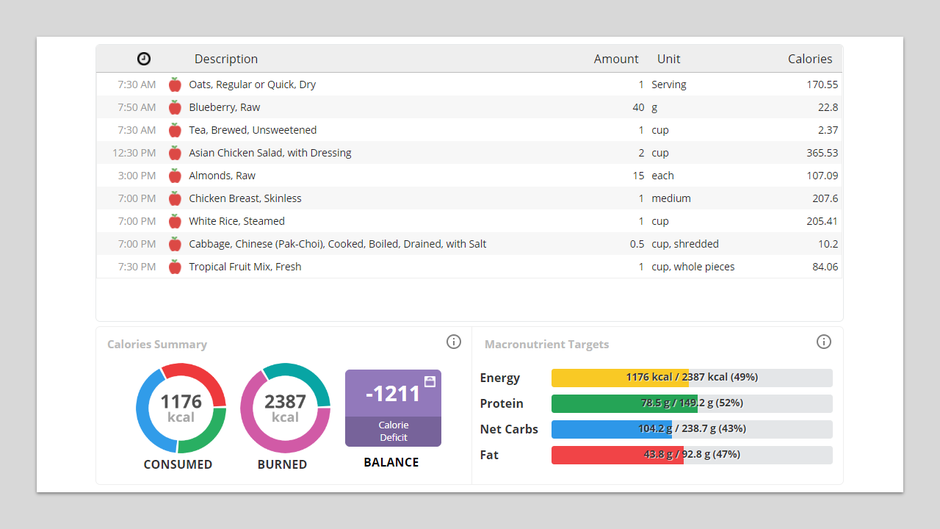
Total calories in this meal?
1,176 kcal
Total calories required by a moderately active 75 kg man of average height, in his 50s?
2,379 kcal
Total calories required by a moderately active 60 kg woman of average height, in her 40s?
1,857 kcal
Total calories required by a moderately active 7 year old boy?
1,624 kcal
Let’s put this in a table.
| Person | Calories (kcal) | % Deficit | ||
| Required | Actual | Deficit | ||
| 75 kg man in his 50s | 2,379 | 1,176 | 1,203 | Undereating by 51% |
| 60 kg woman in her 40s | 1,857 | 1,176 | 681 | Undereating by 37% |
| 30 kg 7 year old boy | 1,624 | 1,176 | 448 | Undereating by 28% |
The healthy diet above isn’t even enough calories to feed a 7 year old child, let alone a fully grown adult!
The consequence of this are metabolic slow down, hypothyroid issues (which controls the metabolism), low energy levels, weight plateau and then weight gain.
#2 A Lack of Nutrient Dense Quality Foods in the Diet
Let’s take another look at our healthy diet day and see how we did on the International Guidelines for Recommended Daily Allowance (RDAs) of essential vitamins and minerals. Essential means you must get them from the diet and cannot manufacture them in your body.
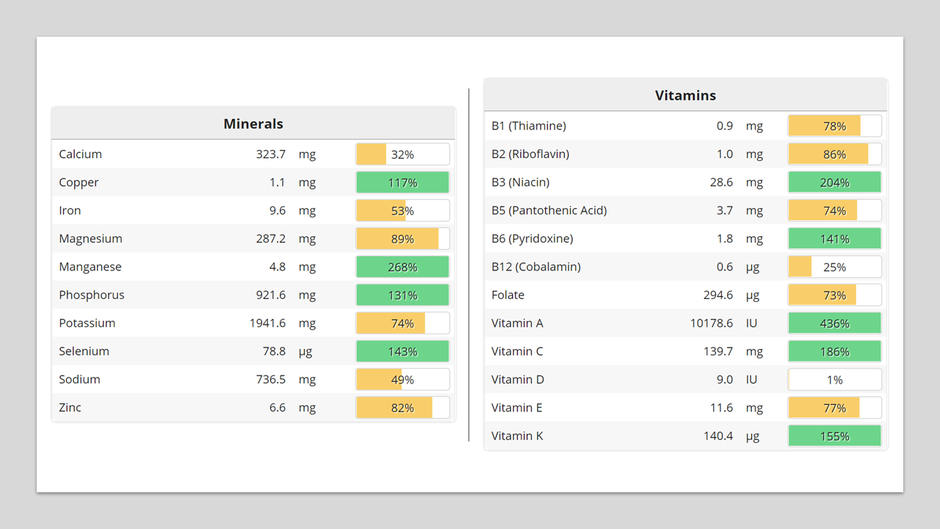
If you continued this way of eating, you’d very soon become deficient in protein, Omega 3 fats, B12, Iron and Calcium. After a little longer you’d also become deficient in B1, B2, B5, Folate, Vitamin E, Magnesium, Potassium, and Zinc. I’ve left out Vitamin D because technically you should be getting that from the sun. Also, Sodium deficiency is unlikely due to it being in such high presence in added ingredients.
Over time these nutrient deficiencies will lead to leaky gut, anxiety, fatigue, impaired immune system, high cholesterol, high blood pressure, headaches and other symptoms. These are all warning signs that something bigger, and more worrying, is around the corner if left unchecked.
Now if we add to the food above 100g of beef liver, 100g of cheese and 1 can of sardines we top not only our RDAs for everything but also still come in under the calorie budget allowing us room to eat even more if we’re still hungry!
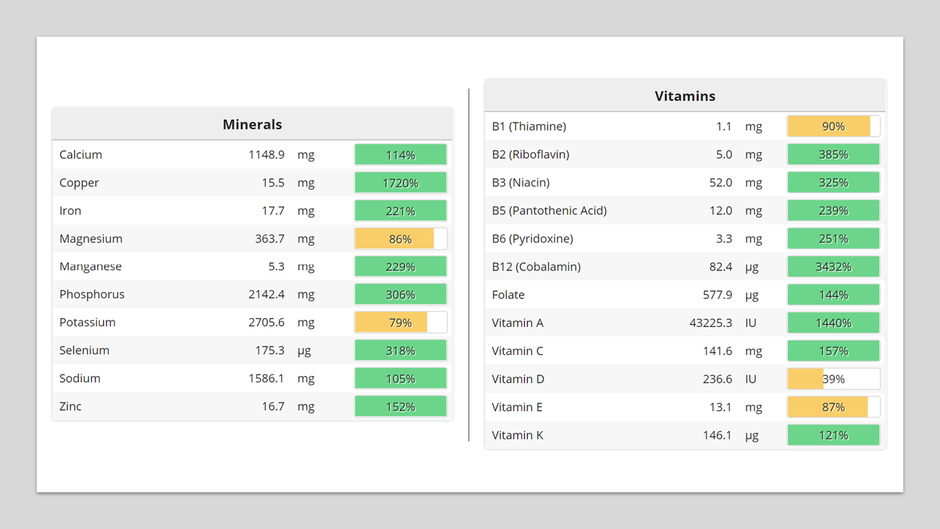
If you want to look more into how to get better quality food into your diet, then check out the following:
#3 Meal Timings
Let’s again look at our healthy diet and see how it looks from a meal timing perspective.

What we can see is that the lions share of the calories (> 50%) are consumed in one meal, at dinner. We discussed this before in this article, You are when you eat, why meal timing matters.
So, what are the problems of eating 50% of your calories at dinner?
- Your metabolism is slow during the day (fat storage mode) because you’ve been underfeeding. Come dinner time you’re still in fat storage mode but you now combine that with a boat load of calories! Not good.
- From a health perspective it’s even worse. Insulin spikes in the presence of not just glucose, but also large meals. High insulin and blood sugar promotes fungal overgrowths like candida, weight gain, diabetes and cancer.
- Most kids can get away with large meals as all their organs are in tip top shape. But adults not so. Large meals require large resources! Your stomach must create hydrochloric acid to break down the food. Your pancreas has to secrete the enzymes to break up the food into smaller pieces. Your pancreas also must release insulin to shuttle the nutrients around the body. Your gall bladder has to release bile acid to break down the fats in the meal. Your intestines must engage the peristalsis movement to push everything through. Your liver plays a huge role in the digestion process as well processing nutrients, digesting fats, producing essential body chemicals and detoxing nasties in the food. All food consumed that cannot be processed properly creates damage in the body.
- This digestion process takes time. For example, animal flesh takes 90 minutes to digest in the stomach before it enters the small intestine. If you’re asleep with a big meal in your gut it’s going to take a lot longer for your body to get into deep, restorative REM sleep and sacrifice essential overnight healing.
Eating a bigger breakfast is going to go a long way to setting you up right for the day, kicking your metabolism into gear (yes, you’ll feel hungrier at lunch – respect that!), and ensuring you are more satiated with smaller meals at dinner.
To Your Health, Happiness and Longevity
The Levitise Team
P.S. If you love this blog post then do check out our fortnightly newsletter where you'll get the freshest content on health, nutrition and fitness delivered straight to your inbox. Don't miss out and sign up here with just your name and email.


Write a comment